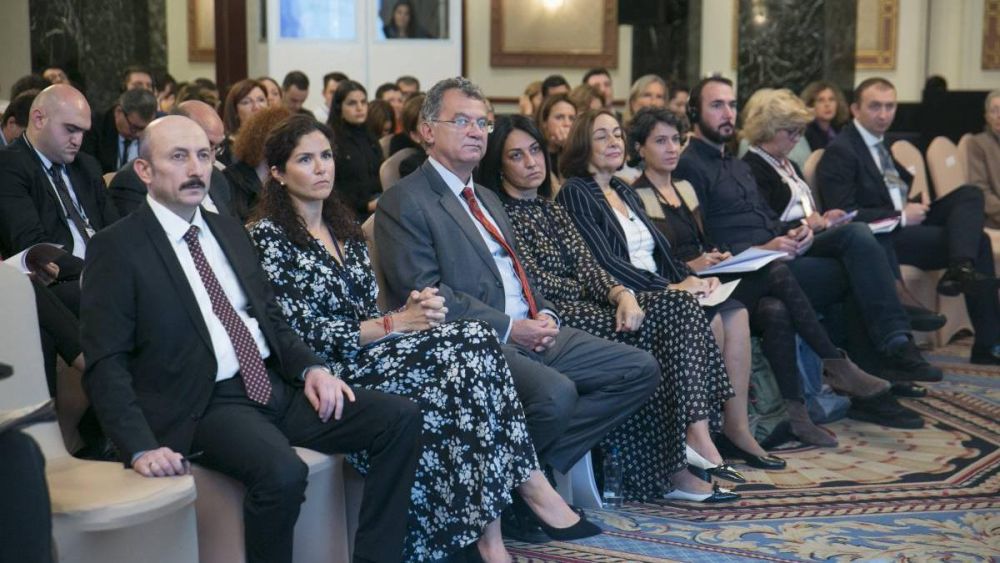Social Emotional Learning Skills Workshop
Social Emotional Skills Workshop was held on March 2, 2019 by members of Boğaziçi University Peace Education Application and Research Center in cooperation with TÜSİAD Education Working Group.
Social Emotional Skills Workshop was held on March 2, 2019 by members of Boğaziçi University Peace Education Application and Research Center in cooperation with TÜSİAD Education Working Group.

Istanbul, 2 March 2019
The theoretical and conceptual framework of social emotional skills was drawn at the workshop, which was opened with a short presentation of the report prepared by the members of Boğaziçi University Peace Education Application and Research Center for TÜSİAD. It was discussed which activities are carried out on social emotional skills in the world and in Türkiye, as well as the outputs of three separate focus group studies conducted with teachers, students and HR managers from the business environment. On the topics discussed, the participants were first brought together in mixed groups (private sector-public-NGO-academia mixed) and then in homogeneous groups specific to the subject/institution, to brainstorm for practice. Participants were informed that the outputs from the Workshop would be added to the written report.
The suggestions that emerged from the workshop are almost exactly supportive of the suggestions developed in the report and are summarized below.
1. Establishing a “Roof Platform” where many stakeholders such as MoNE, Ministry of Family and Social Policies, universities, schools, NGOs, municipalities, public education centers and the business world come together in order to create collective impact and synergy,
2. Starting the SBL Education Campaign, where the target audience is the whole society, based on school and family, 3. All content related to SBL is created on the basis of "Children's Rights",
4. Starting from early childhood and based on the principle of lifelong education, the implementation of existing and proven programs for IBL skills in order to increase the quality of life in the work and family environment,
5. Creating a positive school climate by ensuring that IBL skills penetrate the formal and non-formal education curricula, daily operations of schools, course materials and materials,
6. Inclusion of IBL courses in all departments of universities in general and in Education Faculties that train teachers; expanding the scope of social responsibility and community service courses. Supporting master's and doctorate programs that include SBL content, especially under priority areas within the scope of TUBITAK,
7. Developing teachers' IBL skills through in-service training; Ensuring teacher development by making use of different programs and methods (eg e-learning program in digital environment) and disseminating these studies,
8. Considering the importance of IBL skills in business life, ISKUR, public education centers, community centers and municipal child and youth centers for adult education should provide IBL trainings,
9. Carrying out studies to raise awareness of teachers, health personnel, headman and official religious officials in villages where resources are limited,
10. Carrying out studies to raise awareness of stakeholders in this field in order to show sensitivity to SDL issues in visual and written media, social sharing platforms, films, cartoons, TV series, public service announcements, women's programs and open sessions,
11. Developing a computer game that is sensitive to environmental protection, gender, respect for differences and empathy, and that children and young people will like and be excited about.